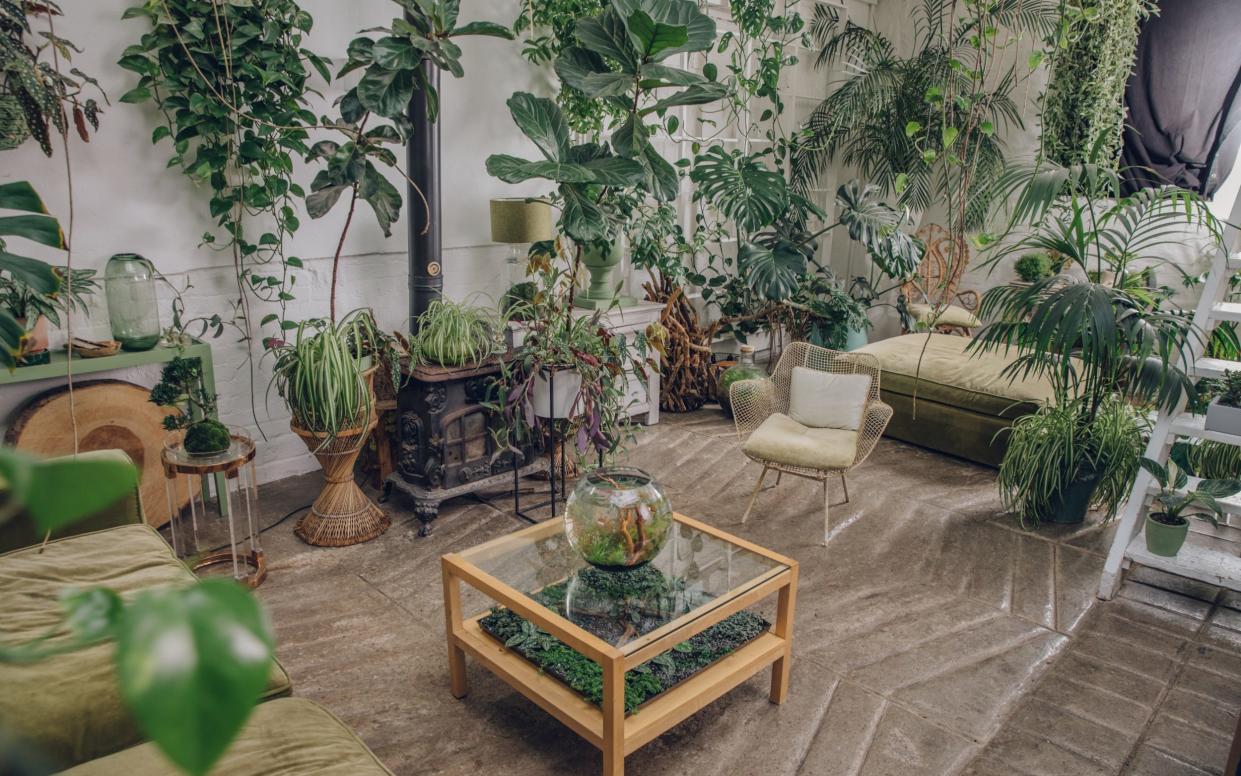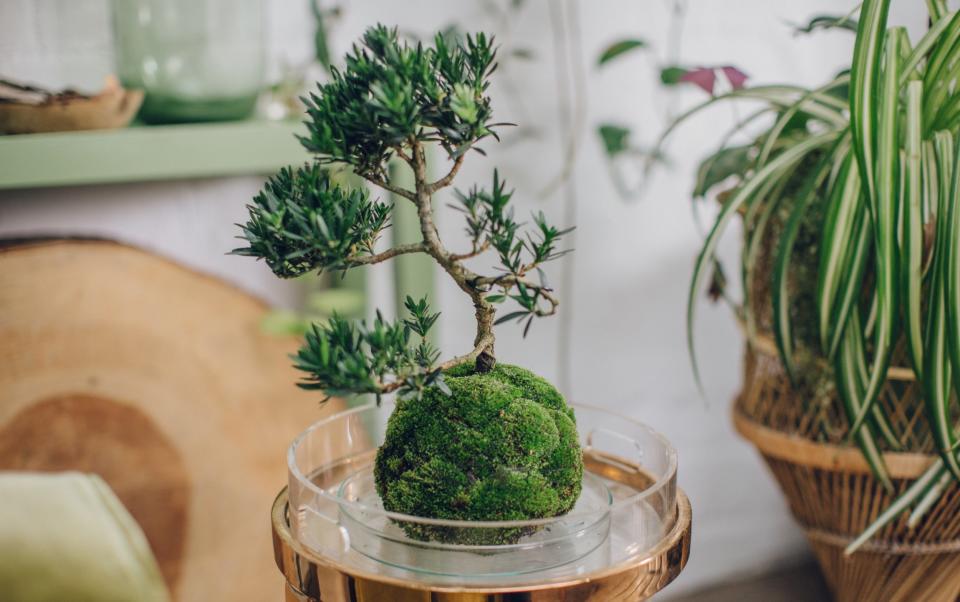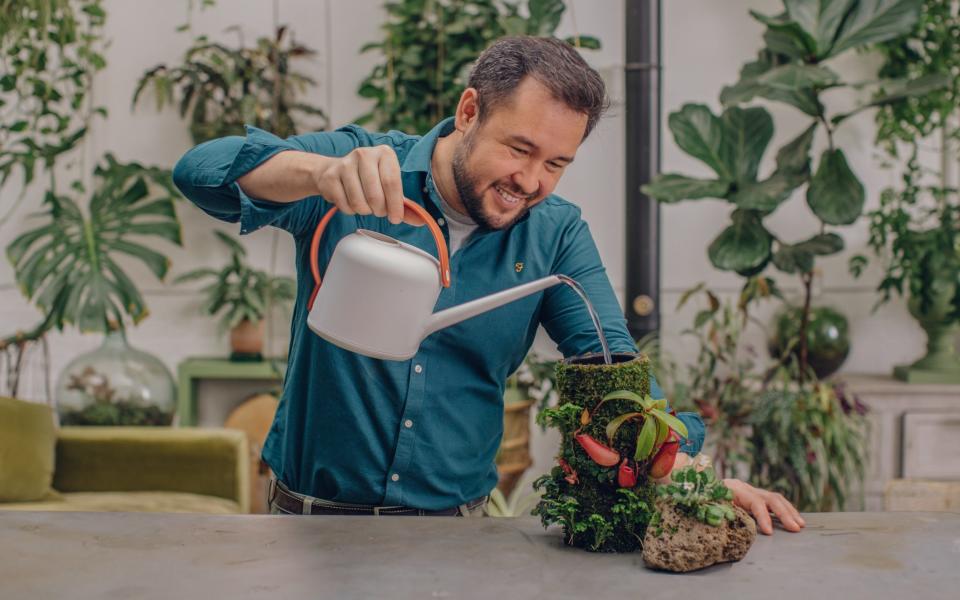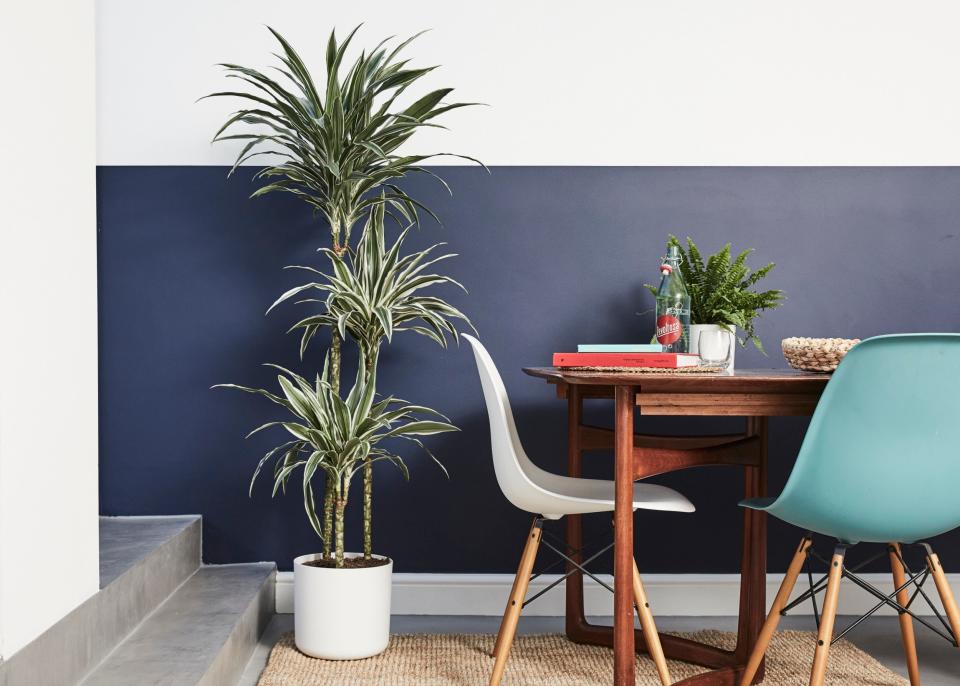Five reasons why you should bring more houseplants into your home

It’s hard to pinpoint exactly when houseplants began their 21st-century revival. But the evidence of the mania for fiddle-leaf figs, monstera deliciosa, philodendrons and trailing spider plants is all around us.
It’s evident from the plethora of houseplant books that continue to be published, the proliferation of chic plant stores that have popped up in cities and towns, and the ever-increasing presence of houseplants on social media.
According to the Office for National Statistics, Britons spent £7.6 billion on plants in 2021, and in the same year 35 per cent of us bought a houseplant.
The houseplant boom was well under way before the pandemic began, but lockdown turbocharged the desire to bring plants into our homes, when even Vogue administered tips to a cohort of millennial and Gen Z plant enthusiasts.
On TikTok, the hashtag #plantparents has now garnered 428.6 million views and enthusiasts share everything from propagation and maintenance tips to how to style an interior with plants.
For younger town and city dwellers, the idea of being “plant parents” has emerged as a way to exacerbate anxiety and bring nature into close quarters. Felicity Hart’s The Little Book for Plant Parents, published in 2021, dished out tips on how to become “a true plant parent”.

On Instagram, where users tend to be older and images rather than videos remain the dominant medium, the hashtag #plantsmakepeoplehappy has currently been used on 12.1 million posts.
In the UK, the interest in houseplants has been echoed in activities by the Royal Horticultural Society (RHS). In 2016, it held its first show dedicated to houseplants, with the RHS London Urban Show in the Lindley Hall.
Since 2021, the Chelsea Flower Show has given more than a section of its expansive site to indoor gardening with the lively Houseplant Studios, in which specialists, growers and independent plant stores curate their own studios for the week of the show.
In October, the RHS will open its first standalone houseplant shop at Bluewater Shopping Centre in Kent, targeting younger growers who lack outdoor space. Next April, it will host a new urban garden show in Manchester covering small-space gardens and indoor gardening, designed for those living in cities with limited or no outdoor growing space.
The interest in houseplants has grown significantly among younger enthusiasts. “So many of us live without an outside space of our own, so owning houseplants provides access to nature and the opportunity to nurture life, something that is particularly important to those who don’t have immediate access to the outdoors,” said Jemma Charman, who co-founded the pop-up plant market and online marketplace Green Rooms, with her twin sister Annie.

James Wong, a botanist and broadcaster, suggested that the surge of plant parenting has deeper psychological roots: “I believe there are several motivating factors behind this movement, beyond what most writers in the press traditionally point to.”
This year, Wong launched his Indoor Gardening Masterclass online course with Create Academy, offering tips on caring for indoor plants, and demystifying home projects from kokedama (the Japanese art of growing a plant in a moss-covered ball of soil) to aquascaping (arranging aquatic plants).
“While it is true that lack of home ownership and interior design trends reflected on social media platforms have definitely played a role in fuelling this trend, the real driver behind it is both the growing psychological need for escapism and to feel in control,” he continued.
“In a world which people, particularly younger people, can find increasingly unstable, uncertain and often frightening, plants provide a really easy form of escapism.”
Whatever the motivations, there are a plethora of potential benefits.
Air purification
Some of the physical benefits of owning houseplants have been much touted by the online retailers who have appeared on the market over the past few years, chief among them the ability of houseplants to clean the air in our homes.
However, said Wong: “It is one of the key claimed benefits of houseplants but it is actually not a claim based on good evidence. The most recent, good-quality studies suggest that you would have to have 500 houseplants per square metre of indoor space to match the effect of simply cracking a window.”
Charman agreed: “It’s a bit of a pet peeve for us. All plants are air-purifying in that they take in carbon dioxide and other pollutants and release oxygen. But most of us will not have the number of plants that would be needed to make a significant difference.”
While many claims have been overblown, research is still ongoing into exactly how effective plants can be in purifying the air in our homes. A recent study by the University of Birmingham, in collaboration with the RHS, found that plants could reduce the levels of nitrogen dioxide – most commonly formed by burning fuels, which would include the vehicle emissions in cities and towns – by up to 20 per cent.
They used common house plants including peace lily (Spathiphyllum wallisii, “Verdi”), dragon tree (Dracaena fragrans, “Golden Coast”) and the ZZ plant (Zamioculcas zamiifolia). They are now working to pinpoint exactly how plants absorb these pollutants.

The feel-good factor
Much more compelling are the benefits that have been quantified in numerous scientific studies, as well the effects that most indoor gardeners find from their own experiences to be true.
Many of these echo similar effects that result from outdoor gardening, chief among which is that by simply engrossing ourselves in caring for plants, growing them, potting or planting, watering and maintaining indoor gardens, there are myriad mental and physical benefits.
A recent study in which the RHS teamed up with researchers from the University of Reading found that healthy plants with a dense canopy such as weeping fig (Ficus benjamina), Calathea and Swiss cheese plant (Monstera deliciosa) resulted in the most positive effects on the way people felt about their indoor environment. Palms were found to have particularly positive associations.
Mood-boosting and mindful
In numerous studies, proximity to nature and greenery has been shown to alleviate anxiety, improve mood and improve our cognitive abilities, as well as reduce blood pressure and levels of cortisol.
In The Well Gardened Mind, psychiatrist and psychotherapist Sue Stuart-Smith drew together existing research together with her own interviews with people involved in therapeutic horticultural projects to illustrate how gardening can help counteract the burgeoning mental health issues of today. She found that working with plants, where there is a clear cycle of life, was especially beneficial to people who had suffered from bereavement or trauma.
As mental health issues rocket among younger generations, nurturing plants has become one of the ultimate mindful activities, with which young people can decompress and escape real world or social media pressures. Growing plants can also lead to improved self-esteem as we nurture plants from seed or watch them grow and flourish.
A sense of escapism
A new generation of “plantfluencers” are tapping into the ability of houseplants to help us tune out the pressure of modern life. Among them is Hilton Carter, the American plant stylist and designer who in March published his fourth house plant book, Living Wild: How to plant style your home and cultivate happiness.
“When I’m watering my plants, it’s just me and my plants at that moment,” Carter confided to Vogue. “It’s when I find my moment of zen. I turn on some music, I light some incense and palo santo, I make myself a coffee, and make sure my water is the right temperature. Then I make my way through my space and everything else is kind of blocked off.”
Fostering a love of nature
One thing is certain: the houseplant is introducing a new generation to horticulture and in turn making them acutely aware of nature. Wong said: “For me as a kid, it was Sir David Attenborough introducing me to the native carnivorous plants of South East Asia in the BBC’s Private Life of Plants that made me want to become a botanist.
“I had walked past many of these species growing next to the bus stop I used for school everyday and never even noticed them before. So the ability for houseplants to introduce a whole new generation to the wonders of the botanical world is such a potential positive to me.”


